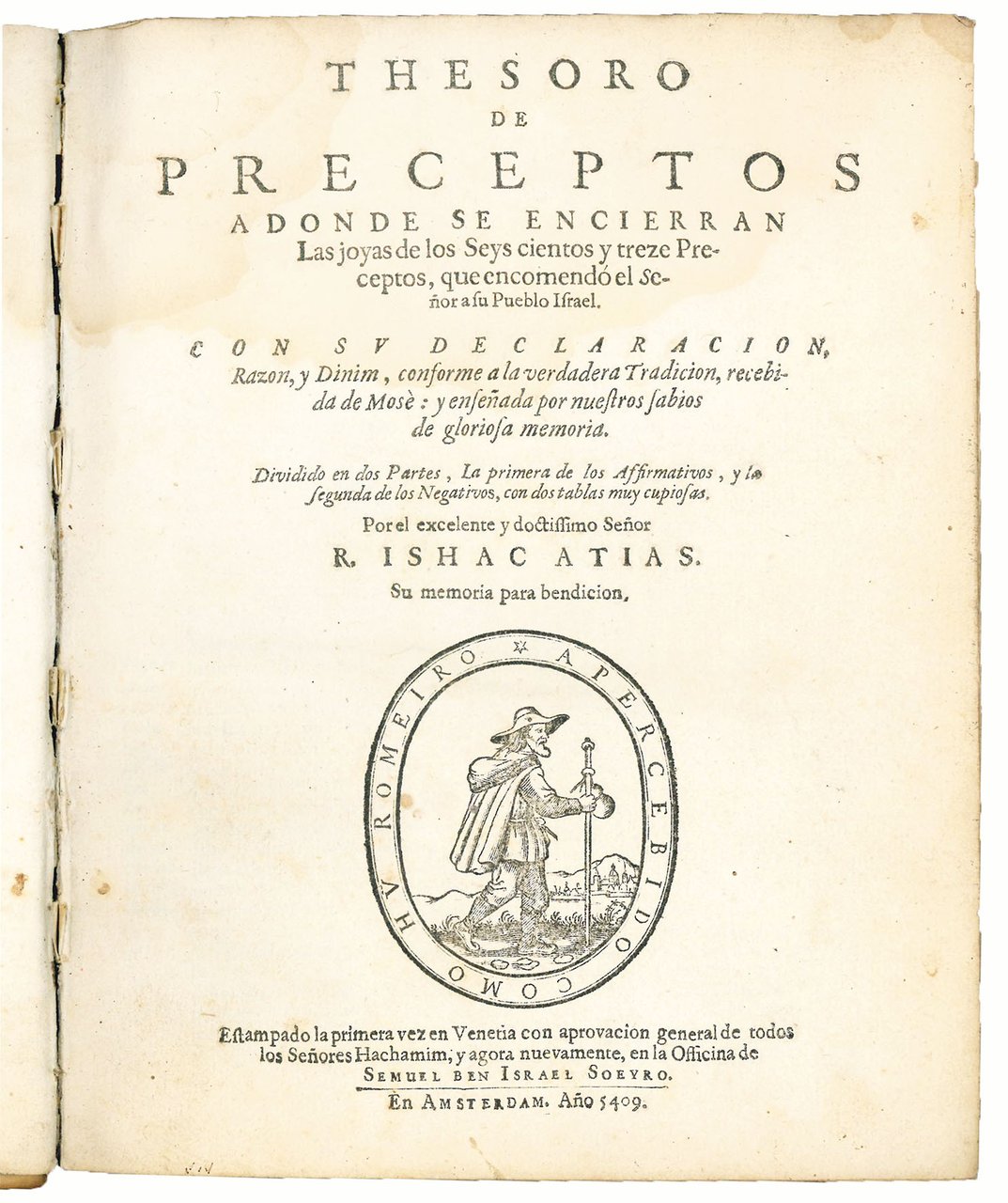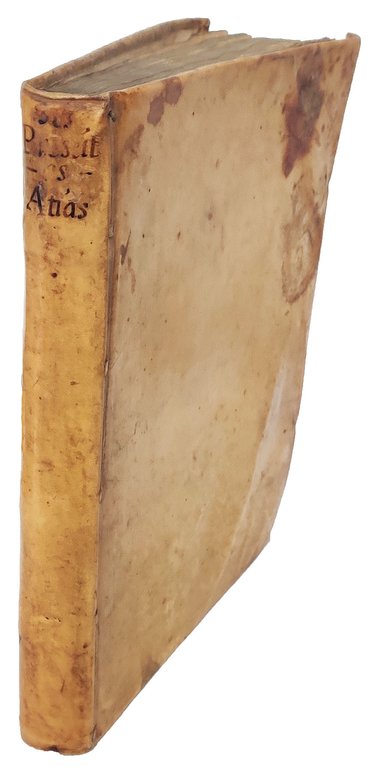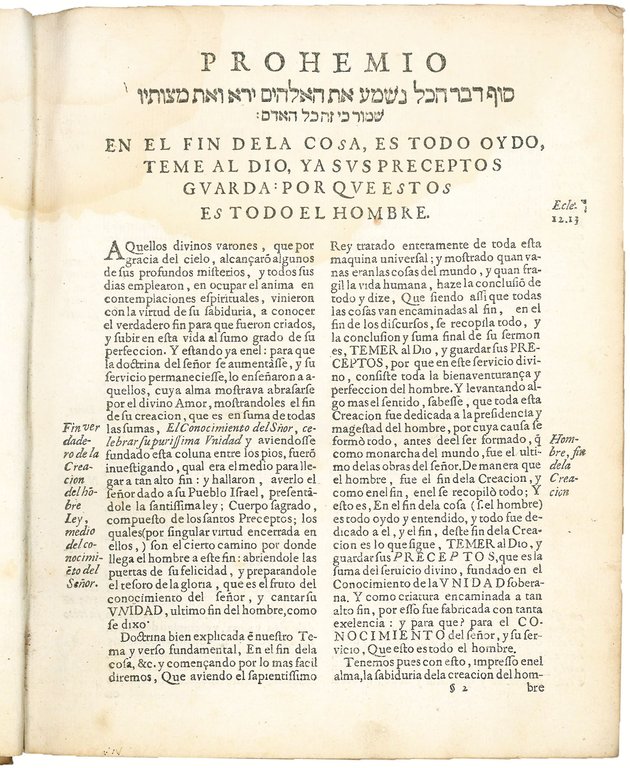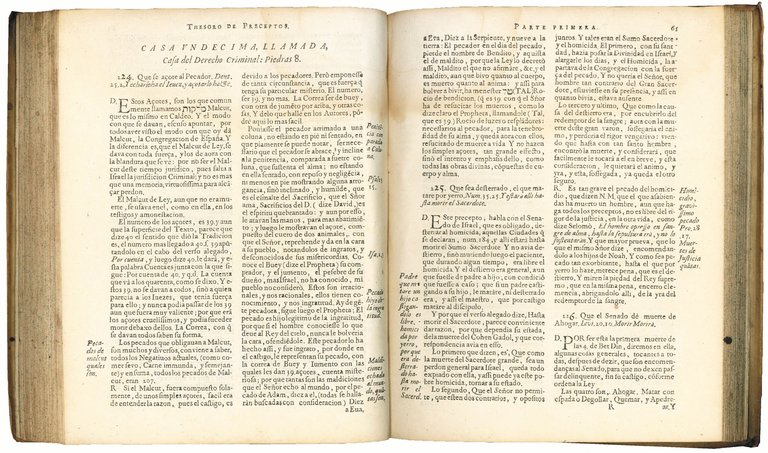



Libri antichi e moderni
ATHIAS, Isaac (b. 1585)
Thesoro de preceptos adonde se encierran las joyas de los Seys cientos y treze Preceptos, que encomendó el Senor a su Pueblo Israel. Con su declaracion, razon, y dinim, conforme a la verdadera Tradicion, recebida de Mosè: y enseñada por nuestros sabios de gloriosa memoria [...]
Samuel Ben Israel Soeyro, 5409 (1649)
2000,00 €
Govi Libreria Antiquaria
(Modena, Italia)
Le corrette spese di spedizione vengono calcolate una volta inserito l’indirizzo di spedizione durante la creazione dell’ordine. A discrezione del Venditore sono disponibili una o più modalità di consegna: Standard, Express, Economy, Ritiro in negozio.
Condizioni di spedizione della Libreria:
Per prodotti con prezzo superiore a 300€ è possibile richiedere un piano rateale a Maremagnum. È possibile effettuare il pagamento con Carta del Docente, 18App, Pubblica Amministrazione.
I tempi di evasione sono stimati in base ai tempi di spedizione della libreria e di consegna da parte del vettore. In caso di fermo doganale, si potrebbero verificare dei ritardi nella consegna. Gli eventuali oneri doganali sono a carico del destinatario.
Clicca per maggiori informazioniMetodi di Pagamento
- PayPal
- Carta di Credito
- Bonifico Bancario
-
-
Scopri come utilizzare
il tuo bonus Carta del Docente -
Scopri come utilizzare
il tuo bonus 18App
Dettagli
Descrizione
Rare second edition of this commentary in Spanish on the 613 Commandments of Judaism. The first part is devoted to the 248 positive commandments; the second to the 365 negative commandments. Isaac Athias was hakham of the first Portuguese-Jewish congregation in Hamburg and after 1622 at Venice, where the first edition of the Thesoro was first printed in 1627 and where he died. The work was intended for Spanish and Portuguese Marranos in places such as Amsterdam, Venice and Hamburg, where they had returned to their ancestral faith not knowing Hebrew and ignoring most of the traditional practices of Judaism. In the preface, Athias explicitly refers to his Marrano brethren as “the noblest nation in Spain”, who had been punished with “exile, disaster, death and excessive suffering [...] the greater part of whom were miserably buried in the darkness of perdition until the Lord came to their rescue and they returned to worship Him”.
Palau, 19334; Sephardic Editions, 1550-1820 Online.

